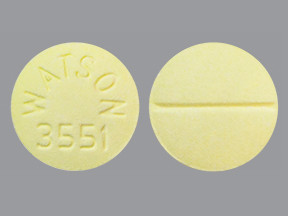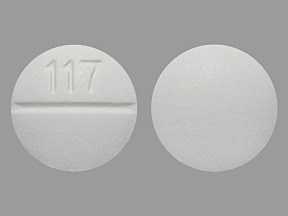OXYCODONE/ASPIRIN - ORAL
PHONETIC PRONUNCIATION: (ox-ee-KOH-doan/AS-pir-in)
COMMON BRAND NAME(S): Endodan, Percodan
GENERIC NAME(S): oxycodone HCl/aspirin
Uses
USES: This medication is used to relieve moderate to moderately severe pain. It contains 2 pain relievers: oxycodone and aspirin. Oxycodone is an opioid (narcotic) pain reliever that acts on certain parts of the brain to relieve pain. Aspirin is known as a salicylate and a nonsteroidal anti-inflammatory drug (NSAID). It works by blocking a certain natural substance in your body to reduce pain and swelling, therefore making you more comfortable and more able to function normally.
How to use OXYCODONE/ASPIRIN - ORAL
HOW TO USE: Read the Medication Guide provided by your pharmacist before you start taking oxycodone/aspirin and each time you get a refill. If you have any questions, ask your doctor or pharmacist. Take this medication by mouth as directed by your doctor. Take it with a full glass (8 ounces or 240 milliliters) of water. Do not lie down for at least 10 minutes after taking a dose. To help prevent stomach upset, take it with food or milk. If you have nausea, ask your doctor or pharmacist about ways to decrease nausea (such as lying down for 1 to 2 hours with as little head movement as possible). Follow your doctor's instructions exactly. Your doctor may instruct you to take this medication only as needed for shorter periods of pain (such as after surgery) or on a regular schedule for ongoing pain (such as cancer pain). If you are taking this medication as needed, remember to take it as the first signs of pain occur. If you wait until the pain has worsened, the medication may not work as well. The dosage is based on your medical condition, use of other pain medications, and response to treatment. Do not increase your dose without consulting your doctor or pharmacist. Do not take more than 4 grams (4000 milligrams) of aspirin in 24 hours. Use the smallest effective dose. If you have ongoing pain (such as due to cancer), your doctor may direct you to also take long-acting opioid medications. In that case, this medication might be used for sudden (breakthrough) pain only as needed. Other pain relievers (such as acetaminophen, ibuprofen) may also be prescribed with this medication. Ask your doctor or pharmacist about using oxycodone safely with other drugs. If this medication has been taken regularly for a long time or in high doses, withdrawal symptoms (such as runny nose, irritability, trouble sleeping, sweating, stomach cramps, diarrhea) may occur if you suddenly stop taking this medication. To prevent withdrawal reactions, your doctor may reduce your dose gradually. Consult your doctor or pharmacist for more details, and report any withdrawal reactions right away. When this medication is taken for a long time, it may not work as well. Your doctor may need to increase your dose or change your medication. Talk with your doctor if this medication stops working well. Though it helps many people, this medication may sometimes cause addiction. This risk may be higher if you have a substance use disorder (such as overuse of or addiction to drugs/alcohol). Take this medication exactly as prescribed to lower the risk of addiction. Ask your doctor or pharmacist for more details. Tell your doctor if your pain persists or worsens.
Side Effects
Precautions
Interactions
Overdose
Images

- color
- yellow
- shape
- round
- imprint
- WATSON 3551

- color
- white
- shape
- round
- imprint
- 117
Reviews
Faq for OXYCODONE/ASPIRIN - ORAL
Oxycodone/Aspirin - Oral is a combination medication used for the relief of moderate to severe pain. It contains two active ingredients: oxycodone, an opioid analgesic, and aspirin, a nonsteroidal anti-inflammatory drug (NSAID).
Oxycodone works by binding to opioid receptors in the brain and spinal cord, blocking or reducing the feeling of pain. Aspirin works by inhibiting the production of certain chemicals in the body that cause pain and inflammation.
This medication is typically prescribed for the relief of moderate to severe pain, such as that caused by injury, surgery, or chronic conditions like arthritis.
Common side effects may include drowsiness, dizziness, headache, nausea, constipation, and stomach discomfort. Serious side effects may include allergic reactions, breathing difficulties, bleeding, and liver problems. It is important to consult a healthcare professional for a complete list of potential side effects.
Inform your doctor about any allergies, medical conditions, or medications you are currently taking, including prescription and over-the-counter drugs, herbal supplements, and vitamins. It is crucial to disclose any history of substance abuse or dependence.
Yes, oxycodone is an opioid, and long-term use can lead to dependence and addiction. It should only be taken as prescribed and under the supervision of a healthcare professional.
Alcohol should be avoided while taking this medication, as it may increase the risk of side effects and liver damage. Combining alcohol with opioids can also potentiate the sedative effects and impair judgment.
Follow the instructions provided by your doctor or pharmacist. This medication is usually taken every 4 to 6 hours as needed for pain relief. It is important not to exceed the prescribed dose.
Oxycodone may cause drowsiness and dizziness, which can impair your ability to drive or operate machinery safely. It is advisable to avoid these activities until you know how the medication affects you.
Warning
WARNING: Oxycodone/aspirin has a risk for abuse and addiction, which can lead to overdose and death. Oxycodone/aspirin may also cause severe, possibly fatal, breathing problems. To lower your risk, your doctor should have you take the smallest dose of oxycodone/aspirin that works, and take it for the shortest possible time. See also How to Use section for more information about addiction. The risk for severe breathing problems is higher when you start this medication and after a dose increase, or if you take the wrong dose/strength. Taking this medication with alcohol or other drugs that can cause drowsiness or breathing problems may cause very serious side effects, including death. Also, other medications can affect the removal of oxycodone/aspirin from your body, which may affect how oxycodone/aspirin works. Be sure you know how to take oxycodone/aspirin and what other drugs you should avoid taking with it. See also Drug Interactions section. Get medical help right away if any of these very serious side effects occur: slow/shallow breathing, unusual lightheadedness, severe drowsiness/dizziness, difficulty waking up. Keep this medicine in a safe place to prevent theft, misuse, or abuse. If someone accidentally swallows this drug, get medical help right away.
Disclaimer
IMPORTANT: HOW TO USE THIS INFORMATION: This is a summary and does NOT have all possible information about this product. This information does not assure that this product is safe, effective, or appropriate for you. This information is not individual medical advice and does not substitute for the advice of your health care professional. Always ask your health care professional for complete information about this product and your specific health needs.
No Reviews Yet